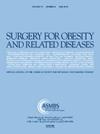Cannabis use before and after metabolic and bariatric surgery: literature review
IF 3.5
3区 医学
Q1 SURGERY
引用次数: 0
Abstract
As accessibility and legalization of cannabis rise throughout the United States (US), programs have sought guidance about whether its use should be considered a contraindication or, if not a contraindication, what recommendations patients should receive regarding appropriate use before and after metabolic and bariatric surgery (MBS). In this review, medical, nutritional, pharmacological, and psychological considerations are presented by a multidisciplinary group of members of the American Society for Metabolic and Bariatric Surgery (ASMBS). Research suggests several risks associated with long-term cannabis use in the general population, but research in the MBS population, specifically, is limited. Cannabis use is not associated with most postoperative complications but is associated with mental health concerns and disordered eating in patients who have undergone MBS. Research regarding weight loss outcomes is mixed, with most studies showing no significant association. Severe cannabis use appears to have more clinical significance than mild to moderate use, as it is associated with longer lengths of stay and medical complications. While an active cannabis use disorder is considered a contraindication, requiring treatment and abstinence before proceeding with surgery, the state of the literature is not strong enough to suggest that occasional or medical cannabis use is an absolute contraindication to MBS. Decisions about cannabis protocols should be made at the MBS program level, and patients should be fully informed about the risks of ongoing use.
求助全文
约1分钟内获得全文
求助全文
来源期刊
CiteScore
6.70
自引率
12.90%
发文量
570
审稿时长
56 days
期刊介绍:
Surgery for Obesity and Related Diseases (SOARD), The Official Journal of the American Society for Metabolic and Bariatric Surgery (ASMBS) and the Brazilian Society for Bariatric Surgery, is an international journal devoted to the publication of peer-reviewed manuscripts of the highest quality with objective data regarding techniques for the treatment of severe obesity. Articles document the effects of surgically induced weight loss on obesity physiological, psychiatric and social co-morbidities.

 求助内容:
求助内容: 应助结果提醒方式:
应助结果提醒方式:


